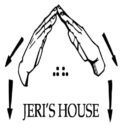Each person is different and unique, and God has a beautiful plan specifically for each person. Jeri’s House is a place where people who are DeafBlind can come and learn how to be independent, learn Braille and signs, advocacy, hobbies, and be comfortable working through their adjustments of being DeafBlind. Jeri’s House promotes empowerment and encouragement for each individual to reach their highest potential.
Braille is a wonderful asset to enable individuals who are DeafBlind to
communicate with themselves and others. Each person can decide for themselves if they want to learn the alphabet or to continue and learn all that Braille has to offer. Individuals will have the option of learning to use a Braille writer or slate and stylus, both great writing tools. Braille is a fantastic way to label your personal items and a wonderful way to enjoy reading the bible or other good books.
Sign Language is a beautiful language that enhances communication with others. Each person will choose whether they wish to learn the manual alphabet, Signed English, or American Sign Language or all. Protactile will also be introduced, which is a form of communication that allows a person who is DeafBlind to interact more efficiently with others. This opens up a huge world of information for people who are DeafBlind.
Leisure group activities will be offered frequently to enhance communication and promote self-confidence and self-esteem. Various activities will be scheduled to allow DeafBlind to learn about their environment and to engage in their surrounding.
Individuals who are DeafBlind will be given the responsibility of helping with all household duties. Each person will learn all the aspects of living independently so they can eventually move forward to their own place of residence.
Support groups / Bible Studies will be offered daily to allow individuals who are DeafBlind to feel free to talk openly about their adjustments to their dual sensory loss and learn about God’s love. Many emotions can oftentimes accompany a person who
is DeafBlind, such as anger, depression, isolation, self-pity, and much more. Being able to confide with others experiencing the same emotions can encourage others to work through those difficult times. Each person will learn to support one another, which will, in turn, empower themselves.
Advocacy is a vital skill to possess. Individuals who are DeafBlind will learn how to express themselves to inform others of their specific needs. Individuals must understand their own disability as well as their abilities in order to advocate more efficiently.
